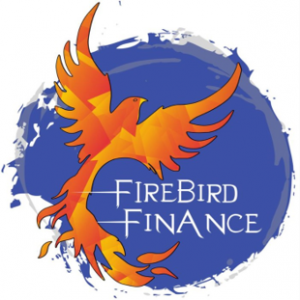FIRE Doesn’t Have to be the Goal
Pursuing FI is a good idea for everyone. What is FI you ask? Financial Independence, along with it’s cousin Financial Independence Retire Early (FIRE), are shorthand in the personal finance space. Even if you are not convinced on the idea of retiring early, working towards FI is still beneficial. There is quite a bit of controversy over the assumption that everyone can pursue FIRE. However, I don’t think that it is a realistic goal for everyone. Here are just a few of those reasons:
Not Everyone Wants to Retire Early
I know that personally, I just don’t want to retire early. I am a very active person and I know that I will always want to work in some capacity, at least for the foreseeable future. What I DO want though, is to have the freedom to change careers as I wish. Nothing is more valuable to me than the ability to know that I can freely leave my current position and have a financial cushion to pursue a different career, even if it pays less.
Some People Just Love Their Job
Another reason that someone may not want to retire early is perhaps they just love their job. Some folks just like what they do and can see themselves doing it until the day they drop. That is fantastic. Very few people find their calling like this. However, even if they love what they do, that doesn’t mean that they will actually be able to do it forever. My dad loved being a CPA, yet, life had other plans. At 49 years old, he was diagnosed with early onset Alzheimer’s and while my parents had a good amount of assets, a lack of planning and insurance set them back in ways that were unexpected and severe. Working towards FI is still a good idea in case of these unexpected events and having an estate planning package in place is a must, regardless.
Early Retirement May Not Be Possible for Everyone
When I say that early retirement may not be possible for everyone, I’m not saying that someone cannot make changes to their lifestyle, job, etc. that may improve their situation. However, in order to retire early, a significant amount of savings is needed in a relatively short period of time. One of my favorite charts on this comes from Mr. Money Mustache.
To put it simply, the higher the savings rate is, the sooner this person will hit their FI number, meaning the amount of money that will allow them to retire, if they choose. Understandably, a higher income, while keeping expenses low would allow for an earlier retirement. However, a low income or minimum wage can make this a significant challenge. Add in some curve balls from our good friend life and early retirement may just not be in the cards. Sometimes, the math just doesn’t add up. There are circumstances that prevent many people from ever being able to retire early. I think that this quote from The Financial Diet sums it up nicely:
You can become wealthy on minimum wage — provided you don’t have: children or other dependents, ongoing medical conditions, bad credit, a disability, face a natural disaster, are abused by a partner, get sued, have relatives in poverty who need your help, face addiction, get deported, have student debt, struggle with mental health, have unstable work, deal with fraud or identity theft, have a complicated relationship with money, or are one of the 40% of low income Americans who lost their jobs due to a global pandemic.”
Emma Pattee, The Financial Diet
Working Towards FI is a Good Idea Anyway
I’m not saying this to be doom and gloom. Even if early retirement isn’t something that you want or can achieve, working towards FI is STILL a good idea. You may not be the person who gets or even wants $2 million by the time you reach 30, but taking small steps to financial freedom will change your life. It can look like:
- Breaking the paycheck to paycheck cycle.
- Having enough money on hand to pay for an unexpected expense, like a blown tire.
- Knowing that even if you lost your job, you have a few months worth of savings to get you through until you find another.
- Finally having enough of a financial cushion to leave a job that isn’t fulfilling.
Each stage can bring you closer to financial freedom long before you ever reach financial independence. Having the freedom to control your life in ways that you previously did not due to monetary concerns is a BIG deal. It’s worth working for and worth celebrating each step along your own journey.
Wrap It Up!
So, if you hear about FIRE and think, “that’s not for me,” I get it. Just don’t shy away at the idea of frugal spending and saving. The idea of FIRE can be completely overwhelming, but getting your financial freedom and pursuing FI is much more achievable than you think. And even if you didn’t reach that magical FI number, you will be so much better off than if you didn’t chase it at all. The key is to find what works for you. If that means saving $5 per paycheck to start, then do that. Future you will be grateful for even the smallest of steps.
Have you heard of FI or FIRE? Are you working towards either? Tell me about your financial journey in the comments below!






Leave a Reply